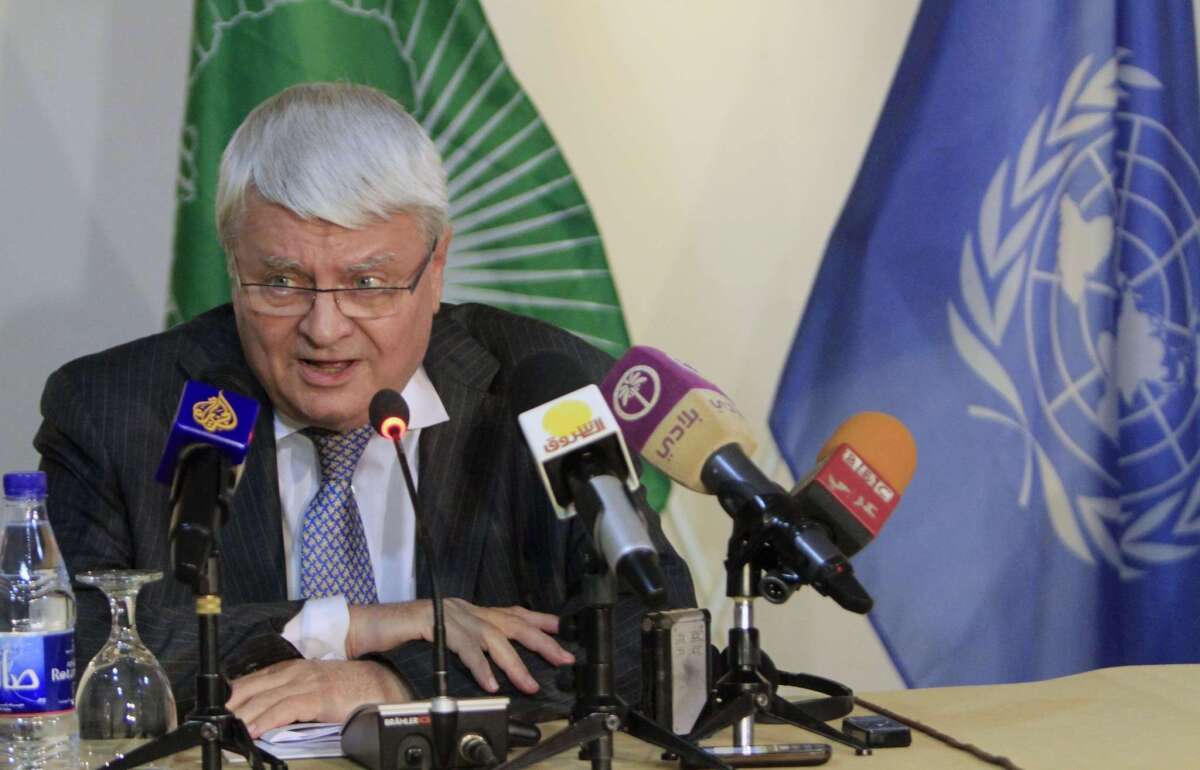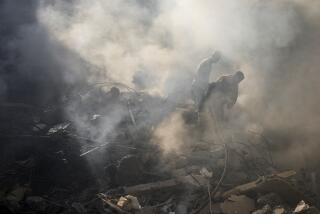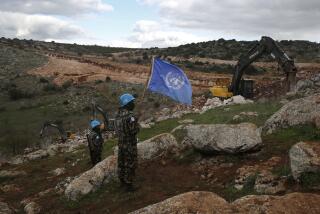Seven U.N. peacekeepers killed in Darfur ambush

JOHANNESBURG, South Africa -- Seven United Nations peacekeepers were killed and 17 were injured in an ambush in the Darfur region of western Sudan, U.N. officials announced Saturday.
It was the second attack on U.N. peackeepers in Darfur this month, and the deadliest in the five years since their mission, UNAMID, began. A convoy of U.N. peacekeepers moving from one of their bases to another was fired on by unidentified attackers, triggering heavy fighting until reinforcements arrived.
U.N. peacekeepers have been increasingly targeted in recent months. In the earlier attack this month, three Nigerian peacekeepers were injured; six other U.N. blue helmets have been killed since October.
The U.N. undersecretary for peacekeeping, Hervé Ladsous, visited the region earlier this month and warned that violence had sharply intensified, reporting that 300,000 people had fled since the beginning of the year. He and other U.N. officials say the sharp increase in violence is due mainly to fighting between different ethnic groups.
Saturday’s attack occured at Manawashi, north of Nyala, the capital of South Darfur. It was not clear who the attackers were or what their motive was. Few details were available.
“The UNAMID [peacekeeping] team came under heavy fire from a large unidentified group. Following an extended firefight, the patrol was extracted by UNAMID reinforcements,” a statement from the 20,000-strong U.N. peacekeeping force in Darfur said.
The peacekeepers are believed to be Tanzanian, although officials didn’t confirm the nationalities of the dead and injured peacekeepers.
Darfur’s decadelong conflict has been largely marked by clashes between government-armed Janjaweed militias and rebel groups. In 2003 and 2004, it was described as the world’s worst humanitarian disaster as tens of thousands fled the fighting, some of them walking for weeks through the desert to escape to neighboring Chad.
A peace deal was signed two years ago in Qatar. Earlier this month Ladsous, the U.N. official, called on the armed groups to stop fighting and reaffirmed U.N. support for the peace deal.
ALSO:
Israel quiet on reports of latest airstrike on Syria
Mexico abuzz over accusations of spying tied to Snowden
Slaying of Syrian rebel commander exposes opposition tension
More to Read
Sign up for Essential California
The most important California stories and recommendations in your inbox every morning.
You may occasionally receive promotional content from the Los Angeles Times.










